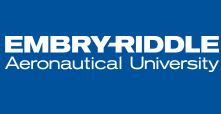
Volume
26
Issue
1
Key words
Education, Assessments, Aviation, Certainty based, Confidence based, Learning
Abstract
Traditional use of multiple-choice questions reward a student for guessing. This technique encourages rote memorization of questions to pass a lengthy exam, and does not promote comprehensive understanding or subject correlation. In an effort to identify guessing on answers during an exam within a safety-critical aviation pilot training course, a qualitative research study was undertaken that introduced a confidence-based element to the end-of-ground-school exam. Confidence-based assessments consist of students’ self-reported level of certainty in their responses, indicating which answers they believe are correct while also indicating how confident they feel with their selections. The research goals were to clearly identify correct, or misinformed, guesses, and also provide an evidence-based snapshot of aircraft systems knowledge to be used as a formative study aid for the remainder of the course. Pilot and instructor interviews were conducted to gather perceptions and opinions about the effectiveness of the confidence-based assessment tool. The findings from the interviews found an overall positive experience and confirmed that the confidence-based assessments were successfully used as intended, to identify weak knowledge areas and as study aids for their remaining study time or during pre-simulator briefing sessions. The study found that if properly trained and administered, a robust confidence-based assessment tool would be minimally-burdensome while offering worthwhile benefits.
First Page
65
Last Page
88
Scholarly Commons Citation
Novacek, P. F.
(2017).
Exploration of a Confidence-Based Assessment Tool within an Aviation Training Program.
Journal of Aviation/Aerospace Education & Research, 26(1).
DOI: https://doi.org/10.15394/jaaer.2017.1717
Included in
Aviation Commons, Curriculum and Instruction Commons, Educational Assessment, Evaluation, and Research Commons, Educational Methods Commons

